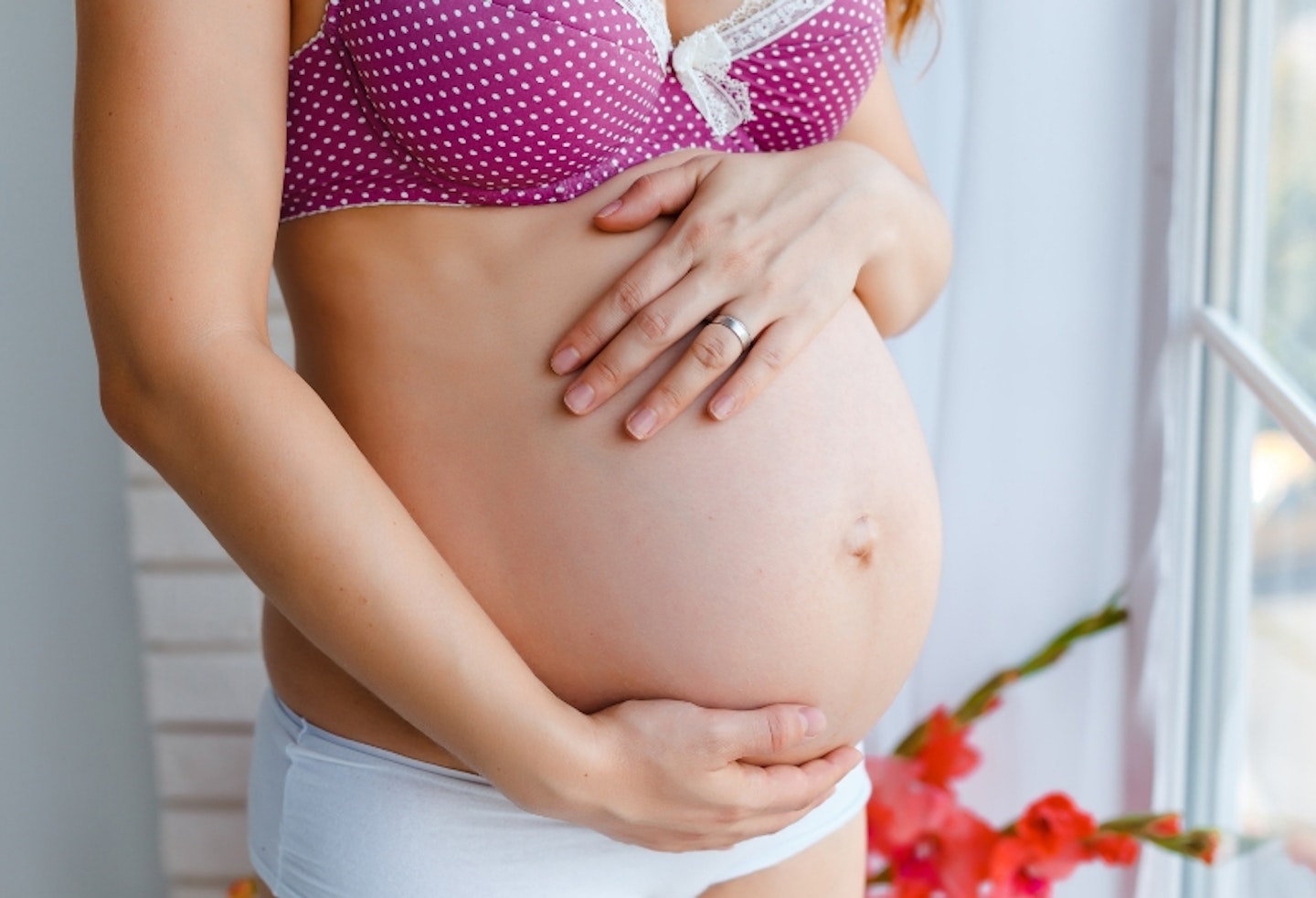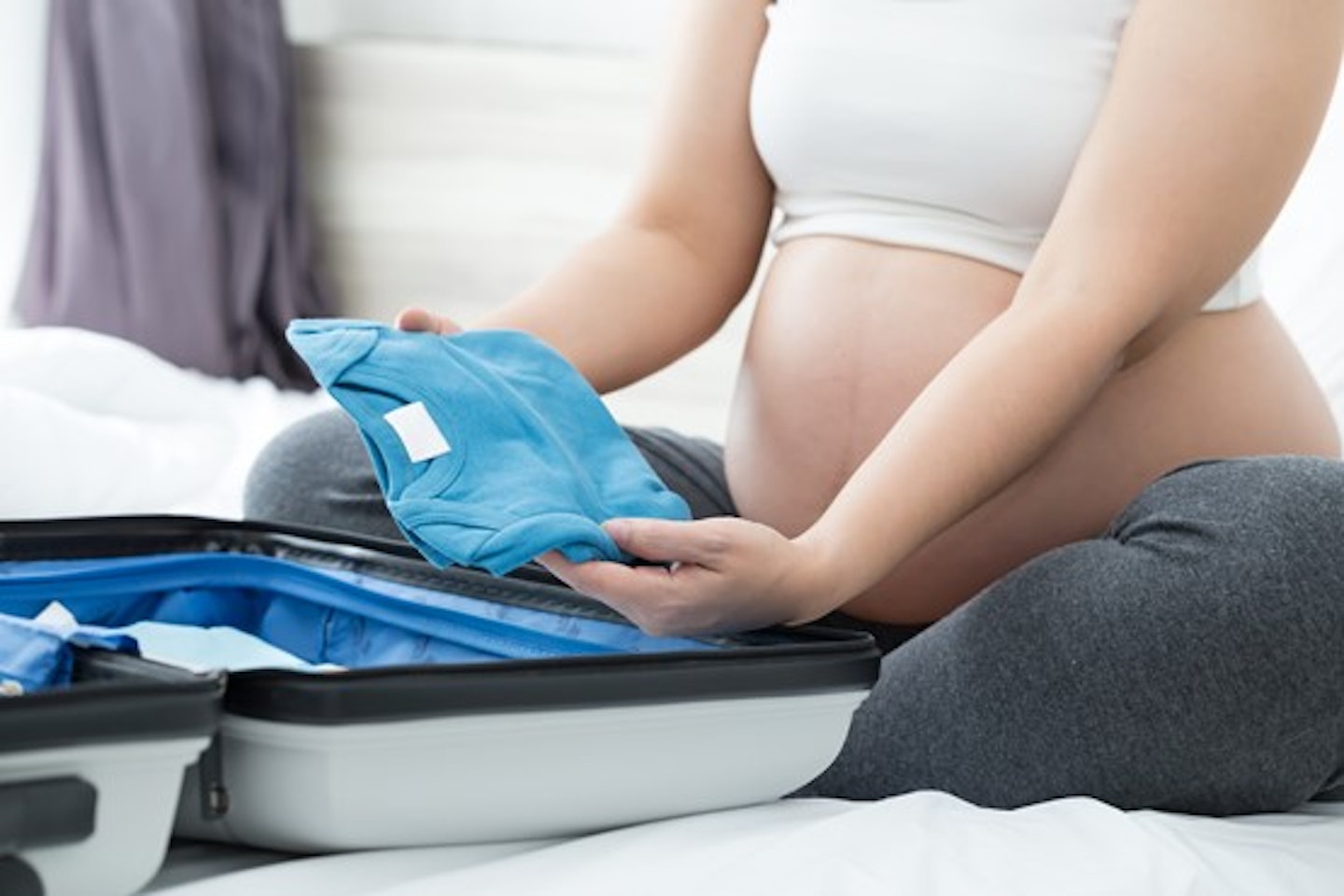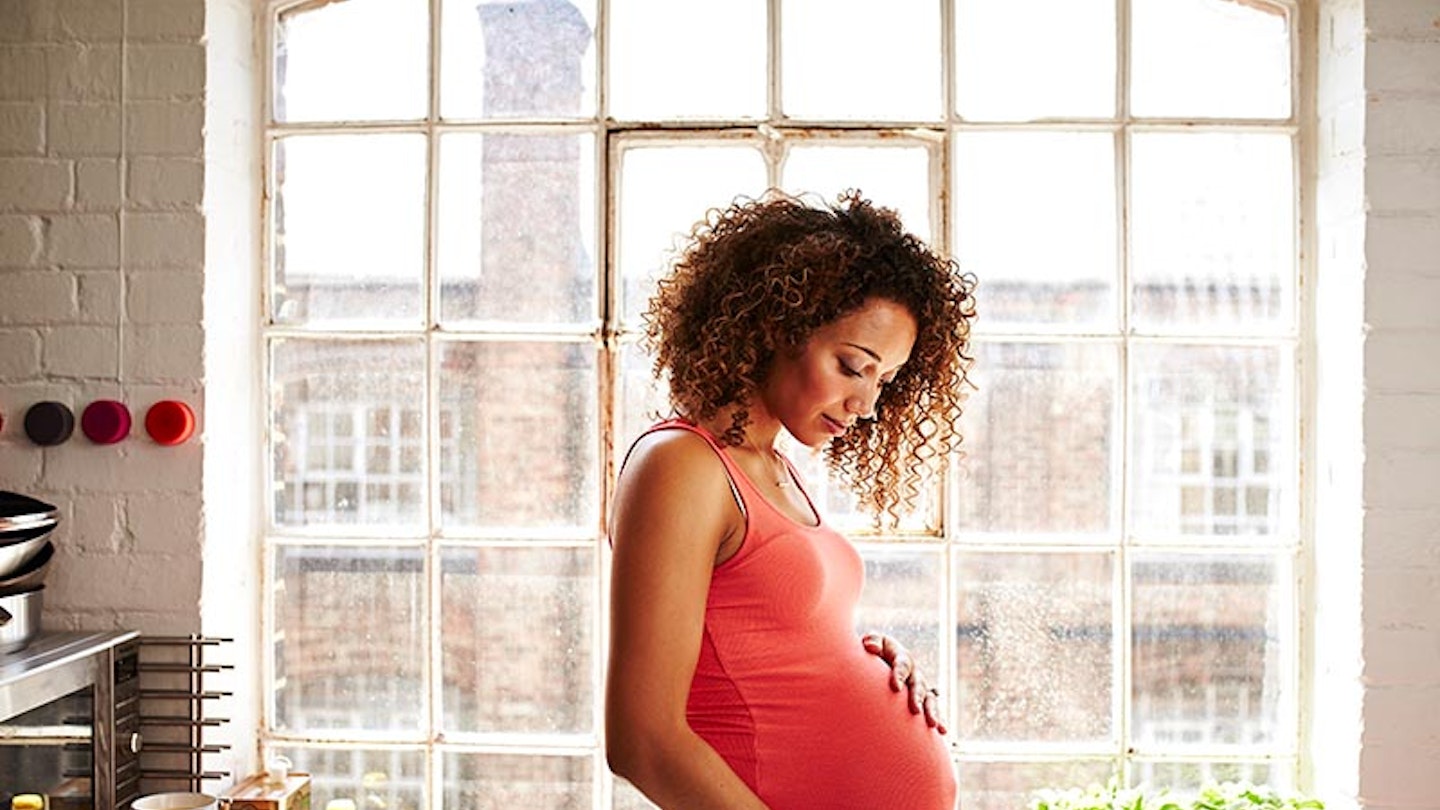At thirty-four weeks pregnant, you're in month 8 of your pregnancy and there’s plenty of exciting things in store. Your baby is nearly ready to be born, and it’s time to start thinking practically, not only about your hospital bag essentials but about your birth plan!
Find out what else you need to know about your baby and your body at 34 weeks pregnant.
How big is my baby at 34 weeks?
Your baby is now the size of a pineapple, weighing in at five and a quarter pounds and measuring up to 18 inches.
They have been growing steadily and they are rounder and cuter than ever thanks to their fat layers filling them out.
34 weeks pregnant symptoms to look out for

1. Itchy red bumps
If you’ve noticed itchy red bumps on your body, normally on your stomach, thighs and buttocks it might be a condition called pruritic urticarial papulesand plaques of pregnancy, or PUPPP, which is harmless but can be uncomfortable.
Consult your doctor to make sure it’s nothing more serious and to offer you treatment if necessary.
2. Swollen feet or legs
Swollen feet and legs is an ongoing issue during pregnancy. Whenever you can, pop your feet up as that will hopefully reduce the swelling.
3. Blurred vision
Pregnancy hormones are responsible for the blurry vision many women experience during pregnancy.
A decrease in tear production can leave your eyes irritated and dry, while your vision may seem blurrier than usual.
Thankfully, your eyesight should return to normal after you give birth, but bear in mind that for the next few weeks, it may be more comfortable to wear glasses than contact lenses.
4. Discharge
We have already discussed that during pregnancy you will often find vaginal discharge increases and as you get closer to the birth, you might notice a further increase.
As with so many other delightful symptoms, this is due to pregnancy hormones, which increase blood flow to the pelvic area.
The discharge is harmless, but try wearing panty liners if they help you feel more comfortable.
Stay away from washes or wipes, as they could increase the risk of infection.
5. Constipation
It is very common to be constipated at this stage of pregnancy. Stay hydrated, eat foods with soluble fibre, go for a gentle walk to get things moving or eat a couple of prunes!
6. Abdominal pain
As your baby begins to move lower in your abdomen in preparation for birth, you might feel more pressure in your pelvis.
This could lead to abdominal pain or (more) frequent urination.
7. Insomnia and fatigue
Sleeping at the end of your pregnancy is often difficult. There’s no point worrying about insomnia, as it can’t hurt you or your baby, and once you start worrying about not sleeping, [insomnia]{href='https://www.motherandbaby.com/pregnancy-and-birth/pregnancy/pregnancy-health-conditions-explained/pregnancy-fatique-tiredness' target='_blank' rel='noreferrer noopener'} can become a vicious cycle.
If your persistent worries are keeping you up at night, talk about them with a friend, family member or partner, or ask your doctor or midwife for advice.
Try and relax as much as possible and avoid caffeine or even chocolate (sorry!).
If you are constantly woken up by needing the loo, try and drink less just before bed.
What’s my baby doing at 34 weeks pregnant?
If your little one is impatient and pops out sooner than expected - at 34 weeks it shouldn’t be too dangerous for them as long as they haven't got any other health problems.
They might have to stay for a short time in the [neonatal nursery]{href='https://www.motherandbaby.com/baby-and-toddler/baby/neonatal-unit-nurse-baby-definition' target='_blank' rel='noreferrer noopener'} and may have a few health niggles, but generally, they should end up fighting as fit as a full-termer.
If baby is sitting tight until your due date, you'll probably notice little hands and feet trying to poke through your pregnant belly.
Oh, and right about now their first poo (meconium stool) is lurking in their intestines ready to be passed once they are born. It’ll be thick, gooey and greenish-black.
If your baby is a boy, this week, his testicles will make the trip down from his abdomen to his scrotum. A small number of babies are born with undescended testicles, but they usually make their way down before their first birthdays.
Their tiny little fingernails are most likely fully grown now, all ready for their mittens and baby manicures once they're born!
What to do this week:

If you haven’t written your birth plan yet, now’s a good time to start.
Essentially, a birth plan gives your midwife an idea of what you would like during the labour, whether that’s pain relief, where you want to give birth, birthing companions and equipment you want to use, such as mats or beanbags.
However, it’s good to remember that a baby won’t necessarily follow your plans, so keep your mind open and expect the unexpected.
It definitely helps if you’ve read up on all the possibilities beforehand, so you’re fully informed if your birth plan goes out the window.
It’s also worth making sure your baby bag is packed and ready, even if you’re planning a home birth, in case you end up being transferred to the hospital. Don’t forget to pack some things for your new arrival.
For you, we advise packing things like your birth plan and maternity notes, a dressing gown, some cosy socks (feet get cold in labour!), slippers, music on your phone or iPod, books and magazines (you might have to wait a while for the baby to show up!) snacks and energy drinks for labour, lots of maternity sanitary towels, a nursing bra and an old nightie or T-shirt to wear during labour.
Your baby will need sleepsuits and vests, nappies, blankets, wipes, booties, and a hat, plus, of course, a cute (but practical) leaving hospital outfit.
And be aware, some hospitals won’t let you leave unless you have a proper, EU approved car seat fitted properly, so be sure your baby's car seat has been properly fitted by a professional.
